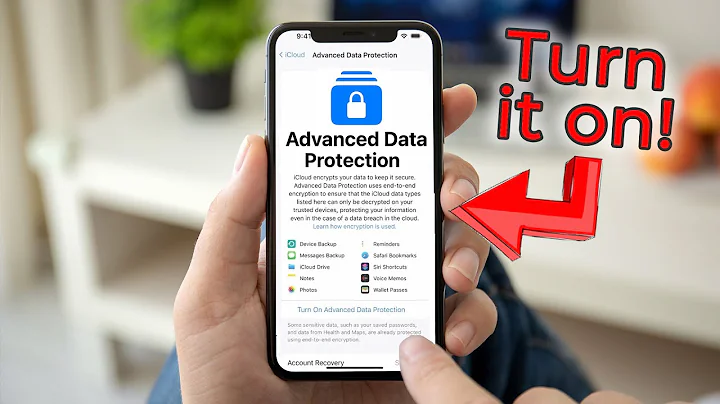China News Service Client, Beijing, October 18 (Reporter Wu Tao) Late at night on the 17th, Apple’s privacy page received a major update. A key point of this update is that when Apple collects user data, it will clearly inform users and allow users to take the initiative to choose whether to share information and with whom, and what permissions to open to APPs.

The red icon is the "Data and Privacy" icon. Image source: Screenshot of Apple's official website
Be careful when you see the data and privacy icons
Apple has added a new data and privacy information page, making it easier than ever for users to understand how Apple will do it before logging in or starting to use new features. Use of users' personal information. The page
has a mark, which is the data and privacy icon. Users should be careful when they see this icon, because it means that Apple may collect some personal information from the user.
Of course, Apple will tell users what data will be shared and how Apple will use the collected information to improve the user experience.

Data map: In 2017, the new iPhone went on sale, and Apple fans lined up to buy it.
APP requires users to approve before accessing personal information.
APP has exceeded its authority, which is a point often complained by netizens. It has been reported by the media that some video website APPs want to view user photos and even monitor phone calls, which is incredible.
Apple’s privacy page stated that if users need to access personal information such as photos and address books for apps that have been installed on their devices, they need to obtain the user’s permission in advance, and users can change these permission settings at any time.
If the APP does have photo permission requirements, for the convenience of use, the user can also set the APP to only use a certain photo instead of granting it all photo permissions.
Users can choose to have the app use only one photo instead of all.
"If an app is found to violate these guidelines, the developer must correct it or the app will be removed from the App Store." Apple said.
 html On September 13, Apple released three new iPhones: iPhone XS, iPhone XS MAX and iPhone XR that support dual-SIM dual standby. Image source: Screenshot of Apple's official website
html On September 13, Apple released three new iPhones: iPhone XS, iPhone XS MAX and iPhone XR that support dual-SIM dual standby. Image source: Screenshot of Apple's official website Most personal information is not uploaded to the server
Xiaoxin also noticed that Apple uses device (iPhone, iPad) processing methods for more and more functions in processing personal information. To put it simply, this information is not transmitted to Apple's servers, but is completed on the user's device.
For example, the data used by Apple's Touch ID and Face ID to identify identities will be expressed mathematically and will be encrypted and protected in a secure enclave on the user's device, whether it is iOS or various apps. Inaccessible.
More importantly, this data will not be stored on Apple servers or backed up to iCloud.
Also, such as iMessage messages and FaceTime calls are specially designed, and Apple says that even they cannot decrypt the data transmitted between devices.

Image source: Apple official website screenshot
Is Siri listening?
It turns out that many netizens have a question: Siri can answer whatever I say. Is Siri always monitoring me?
Now Apple has also explained this matter, "First, Siri can be awakened through keywords, that is, the word 'hey, Siri'. Before awakening, Siri will not dictate or analyze the user's speech."
Apple said, Specific information such as the user's name, address book, music listened to and searched content will be sent to Apple's servers through encrypted protocols. Siri and the dictation feature do not associate this information with the user's Apple ID, but only with the user's device through a random identifier.
In addition, when using Siri, Apple said that it will keep user information on the device as much as possible. For example, when a user uses Siri to search for a photo by location or album name, Apple can get the results without sending the photo to a server.
At the same time, Apple emphasized that the use of certain functions does require real-time transmission of data to Apple servers.For example, only by sending the schedule address and user location to Apple can accurate departure time predictions be provided based on traffic conditions and local public transportation operating hours.

Image source: Apple official website screenshot
Safari browser adds anti-tracking
Safari browser has long been the first to set blocking third-party Cookie as a default function and provides an incognito browsing mode.
In this way, Safari will not add any websites you visit to your history, record your searches, or save any form information you fill out online.
Now, Apple allows APP developers to bring the Safari browser's content blocker to iOS, and it is also more effective on macOS.
Simply put, Safari does not send information about the websites you visit to developers. You can also use content blockers to control what content loads into your browser and prevent others from trying to track your activity on a site or sites.
Finally, Apple also promises on its privacy page that whether users are taking photos, asking Siri questions, or getting route navigation, Apple will never collect users’ personal information to sell to advertisers or other organizations. (End)




![[4 Ways] How to Transfer Apps From iPhone to iPhone - DayDayNews](https://i.ytimg.com/vi/JMQlbxMwX3Y/hq720.jpg?sqp=-oaymwEcCNAFEJQDSFXyq4qpAw4IARUAAIhCGAFwAcABBg==&rs=AOn4CLDafyvD61vQ88_cCXDoaLonO9Adjw)
















